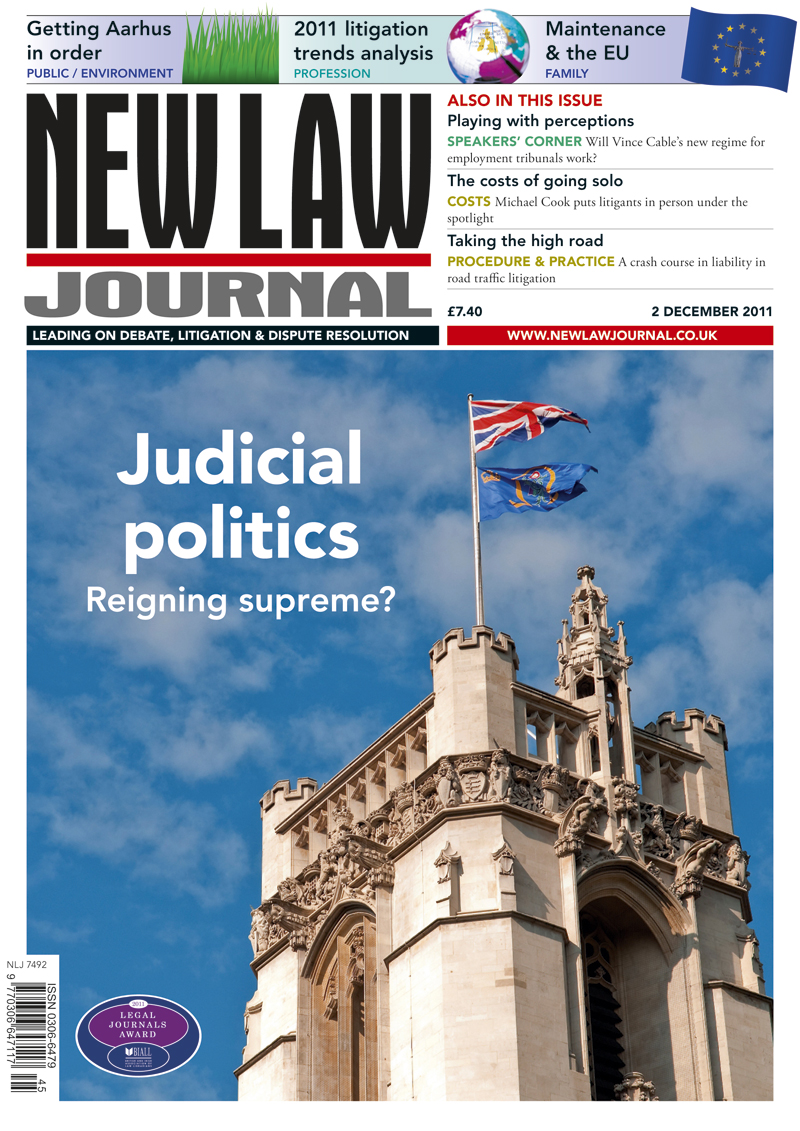
Listen & learn, says Roger Smith, the judges are speaking
Stephen Levinson puts Vince Cable’s new regime for employment tribunals under the spotlight
Simon Cheetham wonders why tribunal recommendations are such a rare beast
Proceed with care. Siobhan Jones distils the lessons practitioners can take away from Kernott v Jones
Amy Taylor predicts the effect of the EC Maintenance Regulation on the courts in England & Wales
Charles Brasted & Julia Marlow count the costs of environmental JR
Karen O’Sullivan provides a crash course in the issues that arise around liability in road traffic litigation
Michael Cook examines the financial implications of litigants in person
R (on the application of Mousa) v Secretary of State for Defence and another [2011] EWCA Civ 1334, [2011] ALl ER (D) 160 (Nov)
Parbulk II A/S v Heritage Maritime Ltd SA [2011] EWHC 2917 (Comm), [2011] All ER (D) 155 (Nov)
MOVERS & SHAKERS

NLJ Career Profile: Ken Fowlie, Stowe Family Law
Ken Fowlie, chairman of Stowe Family Law, reflects on more than 30 years in legal services after ‘falling into law’

Jackson Lees Group—Jannina Barker, Laura Beattie & Catherine McCrindle
Firm promotes senior associate and team leader as wills, trusts and probate team expands

Asserson—Michael Francos-Downs
Manchester real estate finance practice welcomes legal director







